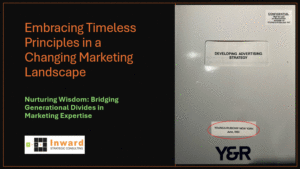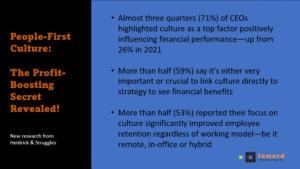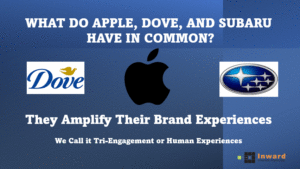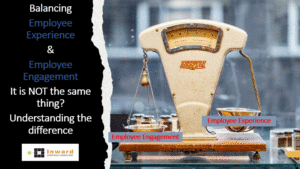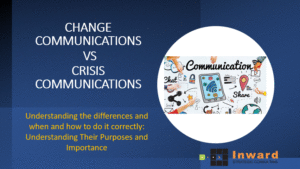Why Internal Brand Advocacy is Vital for Successful Post-Merger Integration and Business Expansion”
In today’s fast-paced business environment, companies are continually growing and expanding through mergers, acquisitions, and organic growth. While growth is essential for businesses to remain competitive and profitable, it also presents numerous challenges that require careful management, especially when it comes to brand advocacy.
One of the most significant challenges facing companies during periods of growth and expansion is maintaining a consistent brand purpose and message across all departments and locations. This challenge becomes even more significant when companies merge or acquire other businesses, as there may be significant differences in brand identity, brand purpose, culture, and messaging between the two companies.
There are several key steps that companies can take to promote internal brand advocacy and ensure successful post-merger integration and business expansion. Here are three of the top things that companies should do:
- Foster a strong company culture and purpose: A strong company culture is essential for promoting internal brand advocacy. Companies should prioritize creating a culture that is aligned with their values and brand purpose. This can be achieved by providing employees with training and resources that promote the company’s values and by recognizing and rewarding employees who demonstrate a commitment to the brand through brand advocate teams.
- Communicate clearly and consistently: Clear and consistent communication is essential for ensuring that all employees understand the company’s brand purpose and messaging. This is not only the responsibility of the marketing and communications teams; it is senior leadership’s responsibility as well, independent of their day-to-day role. Everyone should convey and live the brand purpose of the company. Companies should establish clear communication channels and provide regular updates to employees about the company’s values, goals, and strategies. This can help to ensure that employees feel engaged and informed, which can foster a culture of brand advocacy.
- Invest in employee development: Investing in employee development is essential for promoting internal brand advocacy. Companies should provide employees with training and development opportunities that enable them to develop the skills and knowledge necessary to effectively represent the brand. This can include providing training on the company’s values, culture, and messaging, as well as providing opportunities for employees to develop leadership and communication skills.
To overcome these challenges, internal brand advocacy/championship becomes imperative. Internal brand advocacy refers to the process of creating and maintaining a strong brand purpose within an organization by fostering a culture of brand advocacy among employees. By championing the company’s brand and values, employees become ambassadors for the organization and help to ensure that the brand is consistently represented across all departments and locations.
During post-merger integration, internal brand advocacy is critical to ensure that the newly merged company presents a consistent brand identity to its customers and stakeholders. Employees need to understand the new company’s values, culture, and messaging, and they need to be equipped with the tools and knowledge necessary to represent the brand effectively.
By investing in internal brand advocacy, companies can create a culture of brand awareness and pride among employees. This, in turn, can lead to increased employee engagement and job satisfaction, which can improve retention rates and reduce turnover. Moreover, by fostering a culture of brand advocacy, companies can encourage employees to act as brand ambassadors, promoting the brand to their friends, family, and social networks.
Internal brand advocacy also becomes increasingly critical as companies continue to grow and expand into new markets. As companies expand, it becomes more challenging to maintain a consistent brand identity across different locations and departments. By creating a culture of brand advocacy, companies can ensure that their brand messaging remains consistent and coherent, regardless of the location or department.
In addition to maintaining a consistent brand purpose, internal brand advocacy can also help companies differentiate themselves from their competitors. By fostering a culture of brand advocacy, companies can create a unique and distinctive brand identity that sets them apart from their competitors. This, in turn, can help companies to attract and retain customers, who are increasingly looking for brands that align with their values and beliefs.
Finally, internal brand advocacy can also help companies to adapt to changing market conditions and customer needs. By creating a culture of brand advocacy, companies can ensure that their employees are well-equipped to adapt to changes in the market and to respond to customer needs effectively. This can help companies to remain agile and responsive, even in the face of unprecedented growth and expansion.
By fostering a strong company culture, communicating clearly and consistently, and investing in employee development, companies can promote internal brand advocacy and ensure successful post-merger integration and business expansion.
By creating a culture of brand advocacy among employees, companies can maintain a consistent brand identity, differentiate themselves from their competitors, and adapt to changing market conditions and customer needs. Moreover, internal brand advocacy can improve employee engagement and job satisfaction, which can lead to improved retention rates and reduced turnover. Ultimately, companies that invest in internal brand advocacy are better equipped to succeed in today’s fast-paced business environment.
About Inward
Inward Strategic Consulting is a 26-year-old management/creative consulting firm that helps clients achieve high performance by developing comprehensive business strategies and cultures aligned with their goals, processes, and resources. They specialize in internal/external branding strategies, change management, brand purpose, and market research. They offer proprietary methodologies such as Visioneering, Inward Marketing, Dialogue Marketing, Best Practice and Benchmarking, and Qualitative and Quantitative Market Research. They have worked with Fortune 100 companies including Walmart, McDonald’s, Aetna, City of Hope, and many others.
Allan Steinmetz CEO
















